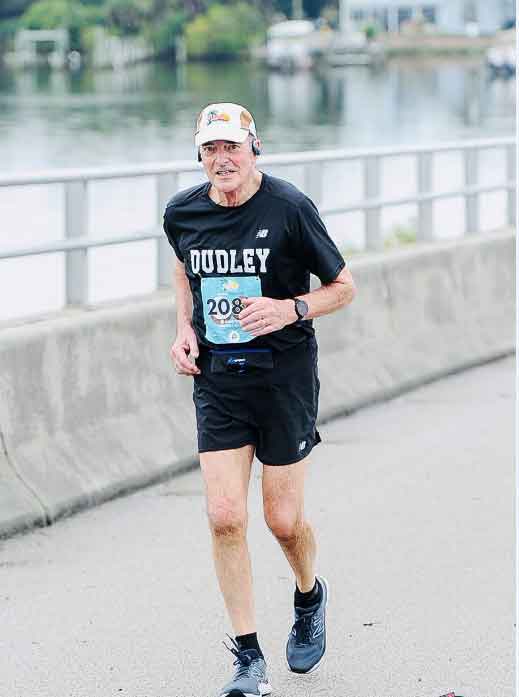
Popular Locations
- Yale New Haven Children's Hospital
- Yale New Haven Hospital - York Street Campus
- Yale New Haven Hospital - Saint Raphael Campus

Published July 05, 2023


Dudley Hamlin has made a living from fun. A youth camp director in Mansfield Center, CT, Dudley was fueled by active hobbies; marathons, trail running, and umpiring college softball. That is until 1999 when he returned from one of the biggest tournaments of his career at the University of California Los Angeles with extreme hip pain. Several physicians diagnosed him with osteoarthritis. He was told he was not a candidate for surgery, and to “Go home and don’t do anything that hurts.” Dudley stopped running, umpiring, and generally all the activities that enriched his life. He was 50 years old, and for the first time, he started to gain weight and become depressed.
Friends noticed Dudley’s decline and encouraged him to seek solutions. One Friday night, alone in his office in searing pain, he started researching surgeons. He learned about the anterior approach to hip replacement and was happy to find the name of a surgeon who had deep experience in this technique.
“With anterior hip replacement, we make a small incision near the front of the hip to allow for removal of damaged bone and cartilage, said Michael Leslie DO, orthopedic surgeon, Yale New Haven Hospital and associate professor, Yale School of Medicine. “With this approach, patients leave the hospital sooner and face less blood loss.”
Dudley emailed Dr. Leslie explaining his history of athletic pursuits, hip pain, and the desire to return to collegiate umpiring the next spring. He received this reply: Sounds like you might need surgery this fall or early winter. I think I can help. Call my office on Monday.
Dr. Leslie scheduled Dudley’s surgery in a timeframe that would get him back on the field as an umpire for the season. Surgery at Yale New Haven Hospital went well, and Dudley credits his physical therapist to getting him up and moving daily. After leaving the hospital, Dudley committed to walks, then jogs, then runs. He lost 27 lbs and went on to umpire 100 games that spring.
“I am having a whole new second half of life I didn’t imagine,” said Dudley. “I asked Dr. Leslie if I could try long-distance running on top of umpiring with my new hips. He said to go right ahead. After several years of training, Dudley ran a marathon the day after his 70th birthday. “It took me 6 hours and 40 minutes to cover the 26 miles, which is really slow, but I just felt elated at the accomplishment.”
Almost ten years after his hip replacement surgery, Dudley credits his friends for pushing him not to accept a sedentary fate.
“These surgeries can be transformative for patients in pain,” said Dr. Leslie. “The key to long-term success often lies in how it is done with things like direct anterior approach, X-rays during surgery, and computer navigation and robotics for selected patients. It is gratifying to see hip replacement patients enjoy many years, even decades, of activities they love.”

Receive information on joint replacement surgery and how to find a specialist.